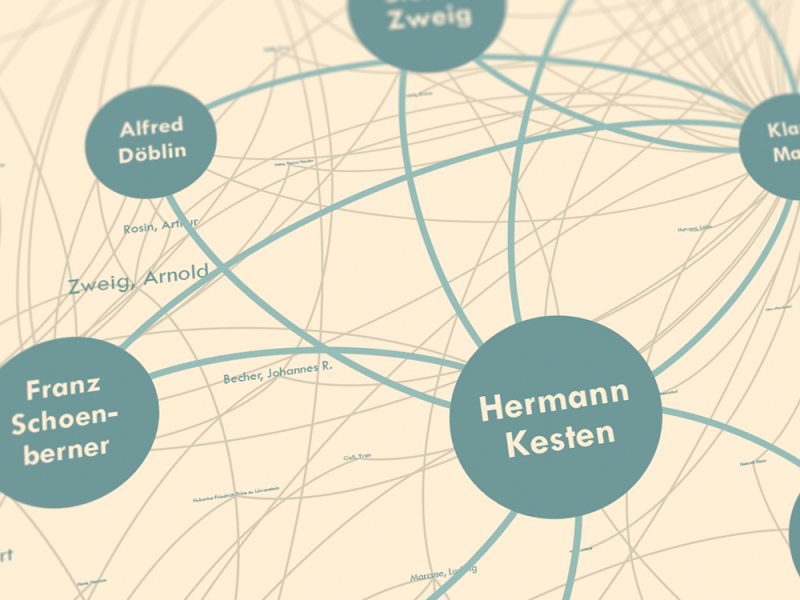"Every one of your letters offers comfort“ – Development and Visualisation of Epistolary Networks of German Exile Writers
Lecture by Dr Vera Hildenbrandt (University of Trier) and Dr Jörg Ritter (Martin Luther University Halle-Wittenberg)

Date:
06.02.2013Place:
A 338, University of Trier
Categories:
EventFurther Information:
Epistolary NetworksDr Vera Hildenbrandt (Trier University) and Dr Jörg Ritter (Martin Luther University Halle-Wittenberg) introduce the cooperation project "Vernetzte Korrespondenzen" (Epistolary Networks) on 6 Feb 2013.
Abstract:
The Nazi seizure of power in Germany in 1933 triggered a in German history unprecedented wave of migration. Many hunderds of thousands of germans went into exile, amongst them "half of the German literature". AUthors such as Herman Kesten, Ernst Toller, Nelly Sachs, Stefan Zweig, Joseph Roth, Mascha Kaléko, Else Lasker-Schüler, and Alfred Döblin were all at once torn away from their versant social present, their familiar linguistic environment, their identity-conveying context, and were exposed to hardship, fear and homesickness, isolation and loneliness. Uncountable letters of these authors certify eloquently how they experienced their exile and how they endeavoured after coming to terms with flight and expulsion causing a radical break in their biographies. There have already been endeavours to collect and publish these letters in the 1930s; endeavours that have not stoppes, as many published correspondences and anthologies show. Yet, the focus in these works is mostly on bilateral correspondences or evolves around one single author. Until today, the exploration of whole exile epistolary networks, on the other hand, seemed to be hindered by the sheer quantity of documents and the qualitative, thematic, and intellectual heterogeneity of the various letters.
A team of researchers of the Trier Center for Digital Humanities, the German Literature Archive Marbach, and the Institute for Computer Sciences at the Martin Luther University Halle-Wittenberg works on answering questions such as
- Who wrote wo whom, when, and about which topics?
- How did one topic spread within one epistolary network?
- How was one topic formed, articulated, and transformed under exile conditions?
- Which topics were important to whom and when?
- etc.
The project will be financially supported for 3 yeras by the Federal Ministry of Education and Reserach starting in February 2013.
The aim of this project is the conception and realisation of a generically designed and modularly interactive web-based platform for the development, reserach and visualisation of social, temporal, and thematic networks within the letter corpora.
Epistolary Networks
All guests are very welcome!

